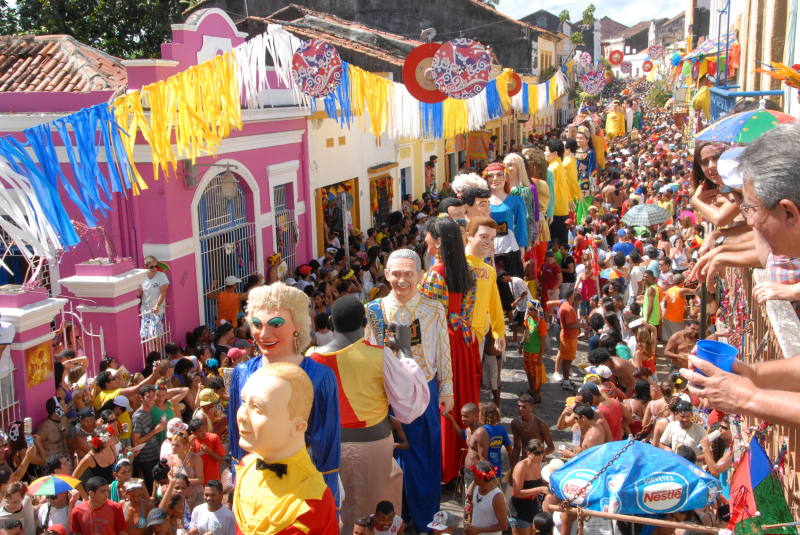Olinda
Olinda is a historic city in the northeastern Brazilian state of Pernambuco. It lies in the Metropolitan Region of Recife, the state capital, on the country's northeastern Atlantic Ocean coast. It has been inhabited since 1535 and is considered one of Brazil's best-preserved colonial cities. Olinda, the former capital of the Captaincy of Pernambuco during the colonial era, includes several historical structures, including the center, which was designated as a UNESCO World Heritage Site in 1982, as well as a vibrant culture. The Carnaval of Olinda, a popular street fiesta, is comparable to conventional Portuguese carnivals, but with African-influenced dances that represent the Northeast's heritage. All of the activities are held on the streets, with no bleachers or ropes, and admittance is free, unlike in other cities. Hundreds of minor musical ensembles exist in a variety of genres.
Olinda declined in importance after the Dutch invasion. Recife became the capital of Pernambuco in 1827, and Olinda is part of the greater Recife metropolitan area. Due to the historic position of the city, its cathedral, a World Heritage Site, called São Salvador do Mundo, remains the primary seat of the Roman Catholic Archdiocese of Olinda and Recife, with a co-cathedral in Recife. Olinda also has a Minor Basilica, again a World Heritage Site. Besides its natural beauty, Olinda is also one of Brazil's main cultural centers: in 1982 it was declared a World Heritage Site by UNESCO. The city relives the magnificence of the past every year during the large Carnival, to the rhythms of frevo, maracatu, and other northeast music and dances.
Location: Pernambuco, Brazil, in the Northeast Region









